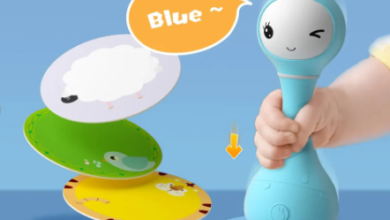Best Tips to Take Care of Your Newborns

Welcoming a newborn into your life is one of the most magical and overwhelming experiences. Those early days are filled with excitement, exhaustion, and endless learning. New parents often find themselves wondering how to best care for their tiny, delicate baby. Luckily, with a little guidance and patience, you can confidently navigate these first precious months. Here’s a helpful guide filled with practical tips to make your newborn care journey smoother and more enjoyable.
Understand the Newborn Stage and How to Take Care of Your Baby
Before diving into tips, it’s important to know: how long is the newborn stage? Typically, the newborn period lasts from birth up to about two months old. During this time, your baby is adjusting to life outside the womb, rapidly developing basic senses, motor skills, and early communication. It’s a time of tremendous growth and bonding, and understanding this phase can help you respond better to your baby’s needs.
So, how to take care of your newborn to make your baby grow smoothly? Follow our tips below.
See also: Tyler, The Creator Merch: A Bold Statement of Style and Identity
Master the Art of Feeding
Whether you choose to breastfeed or formula-feed, frequent feedings are crucial in the newborn stage. Most newborns eat every two to three hours. Watch for hunger cues like rooting, lip smacking, or hand-to-mouth movements instead of waiting for cries. Breastfeeding moms should also remember to take care of their own hydration and nutrition to support milk supply. Don’t hesitate to seek help from a lactation consultant if needed. Early support can make a huge difference.
Prioritize Safe Sleep Practices
Sleep is vital for both your baby’s development and your own well-being. Always lay your newborn on their back to sleep, on a firm mattress without pillows, blankets, or stuffed toys, to reduce the risk of SIDS (Sudden Infant Death Syndrome). Newborns typically sleep 14–17 hours across a 24-hour period, but in short bursts. It’s normal for sleep patterns to be unpredictable during these early weeks, so be patient and flexible with your schedule.
Keep Diapering Simple and Comfortable
Expect lots of diaper changes — about 8–12 per day! Frequent diapering helps prevent diaper rash and keeps your baby comfortable. Use fragrance-free wipes or warm water and cotton pads for cleaning, and allow the area to air-dry before putting on a fresh diaper. Applying a light layer of diaper cream can offer extra protection against irritation.
Establish a Gentle Bathing Routine
Newborns don’t need daily baths – two to three times a week is usually sufficient unless there are big messes. Stick to sponge baths until the umbilical cord stump falls off, which typically happens within the first few weeks. Use lukewarm water and mild, fragrance-free baby soap. Bath time can also be a sweet bonding experience filled with gentle talking and singing to your baby.
Bond Through Touch and Talk
Cuddling, baby-wearing, and skin-to-skin contact are not only comforting but also vital for emotional development. Talking, singing, and making eye contact with your baby throughout the day helps stimulate their developing brain. Even if your newborn doesn’t respond yet, these early interactions lay the foundation for future communication and secure attachment.

Follow Baby’s Lead for Play and Stimulation
During the newborn stage, simple activities like tummy time are incredibly beneficial. Tummy time strengthens your baby’s neck and shoulder muscles and prepares them for milestones like rolling over and crawling. Start with just a few minutes a day and increase gradually. Keep toys and activities basic, and high-contrast images, soft rattles, and your own face are your baby’s favorite sights!
Conclusion
Caring for a newborn can feel daunting, but remember: you don’t have to be perfect. Responding to your baby’s needs with love and patience is the most important thing you can do. Knowing how long the newborn stage is gives you a better idea of when to expect gradual shifts in your baby’s behavior and development. Before you know it, your little one will be moving into new milestones, and you’ll be amazed at how much you’ve both grown.




